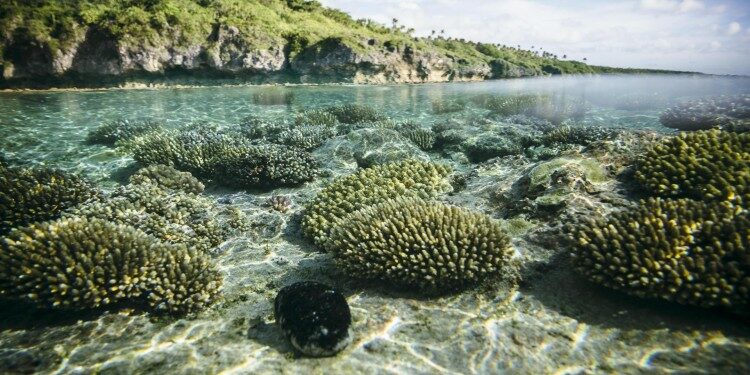About the conference-
- It was co-hosted by the Governments of Kenya and Portugal.
- To mobilize action, the Conference sought to propel much needed science-based innovative solutions aimed at starting a new chapter of global ocean action.
- The five-day Conference saw senior officials and scientists from more than 120 countries.
- France would co-host the third UN Ocean Conference with Costa Rica in 2025.
- France and Costa Rica are co-chairing an intergovernmental environmental group launched in 2019, the High Ambition Coalition for Nature and People, which now includes 102 countries.
India’s participation-
- From India, Union Minister of State (Independent Charge) Science & Technology; Minister of State (Independent Charge) Earth Sciences, Dr Jitendra Singh attended the conference.
- He spoke on the theme– “Scaling up ocean action based on science and innovation for the implementation of SDG goal 14: stocktaking, partnerships and solutions”.
Outcomes of the conference-
- The summit was focused on achieving a shared goal: U.N. Sustainable Development Goal No. 14 (SDG14), which aims to protect life below water.
- World leaders adopted an action-oriented Political Declaration to save the ocean from existing and future threats, including marine pollution, harmful fishing practices, biodiversity loss, and acidification.
- Through the Declaration, titled “Our Ocean, Our Future, Our Responsibility”, Heads of State and Government and high-level representatives participated in the Conference.
- A “Blue Deal” was promoted at the 2022 United Nations Ocean Conference to enable the sustainable use of ocean resources for economic growth.
- It includes global trade, investment and innovation to create a sustainable and resilient ocean economy.
- It would also benefit coastal and island developing nations.
- Representatives adopted a statement called the Lisbon Declaration, which presents a series of science-based actions needed to deal with the “global emergency facing the ocean,” while taking into account the challenges small islands and developing nations may have in implementing these actions.
- Many countries announced new protective measures within their exclusive economic zones (EEZs), areas of the ocean that extend 200 nautical miles (370 kilometers) from each nation’s coasts and several countries announced new marine protected areas (MPAs)
- Participating nations called for more Scientific Partnerships, Knowledge-Sharing to Protect Humanity’s Common Ocean Heritage.
- Participants formed several new alliances at the UNOC, including an alliance of nations calling for a moratorium on deep-sea mining.
- The conference stressed that strong engagement and ownership by a wide range of stakeholders is essential for optimizing the unique opportunity provided by the UN Decade of Ocean Sciences for Sustainable Development (2021 to 2030) and realizing the 2030 Agenda for Sustainable Development.
About UN Decade of Ocean Science for Sustainable Development 2021 – 2030-
- In December 2017, the United Nations declared that a Decade of Ocean Science for Sustainable Development, the ‘Ocean Decade’, would be held from 2021 to 2030.
- As mandated by the UN General Assembly, the Intergovernmental Oceanographic Commission (IOC) of UNESCO will coordinate the Decade’s preparatory process, inviting the global ocean community to plan for the next ten years in ocean science and technology.
Note-
- While they cover 70 per cent of the planet, the oceans form the largest biosphere, and are home to up to 80 percent of all life in the world.
- They generate 50 percent of the oxygen we need, absorb 25 percent of all carbon dioxide emissions and capture 90 percent of the additional heat generated from those emissions.
- Currently, the sea facilitates over 80 per cent of the volume of world trade.
















